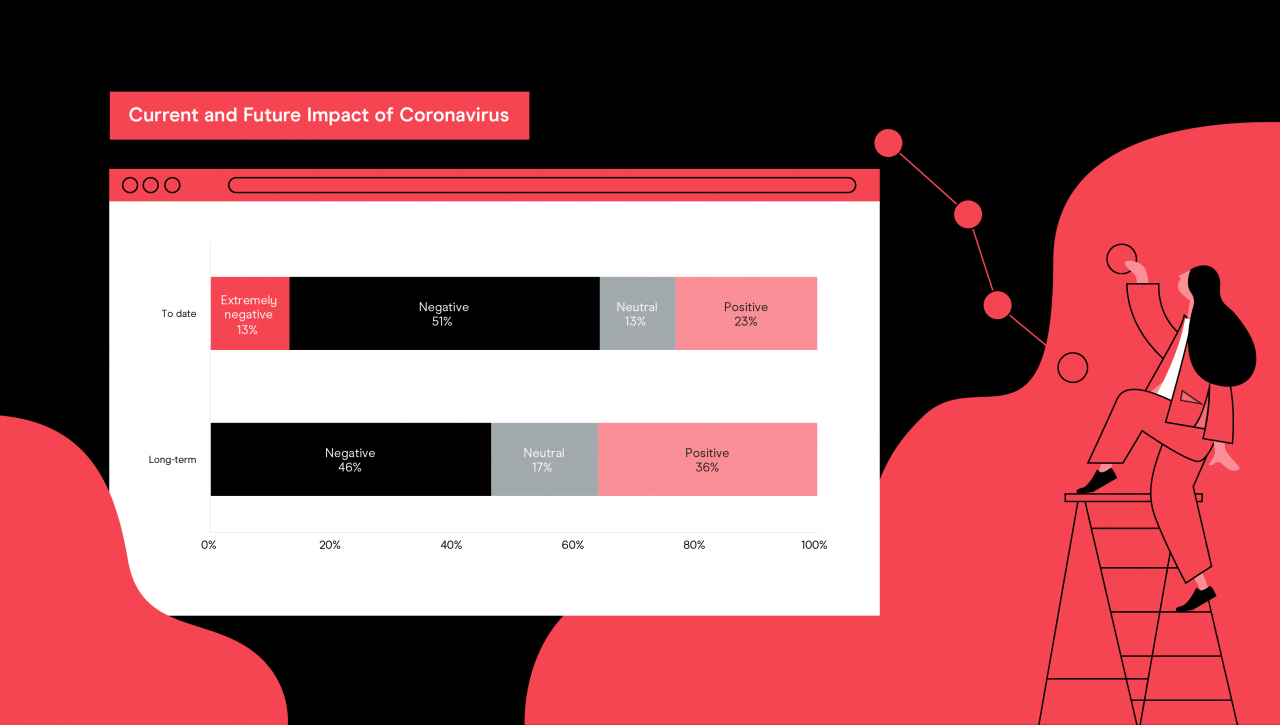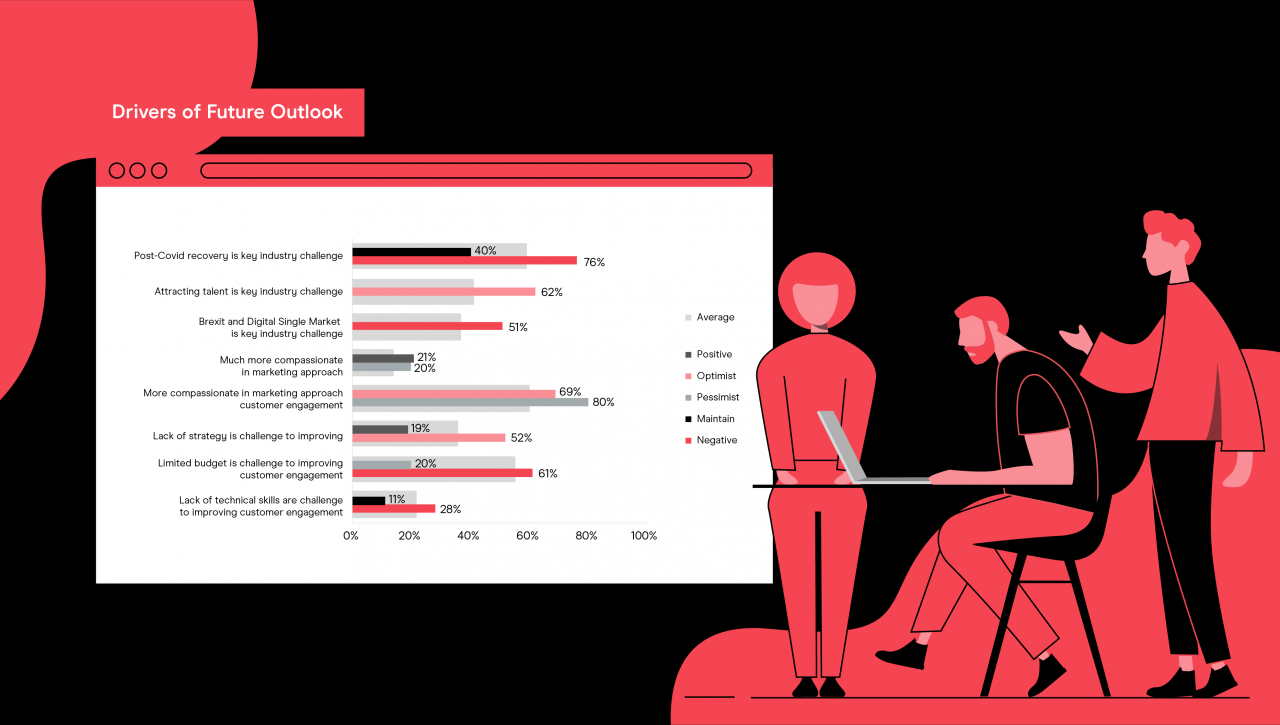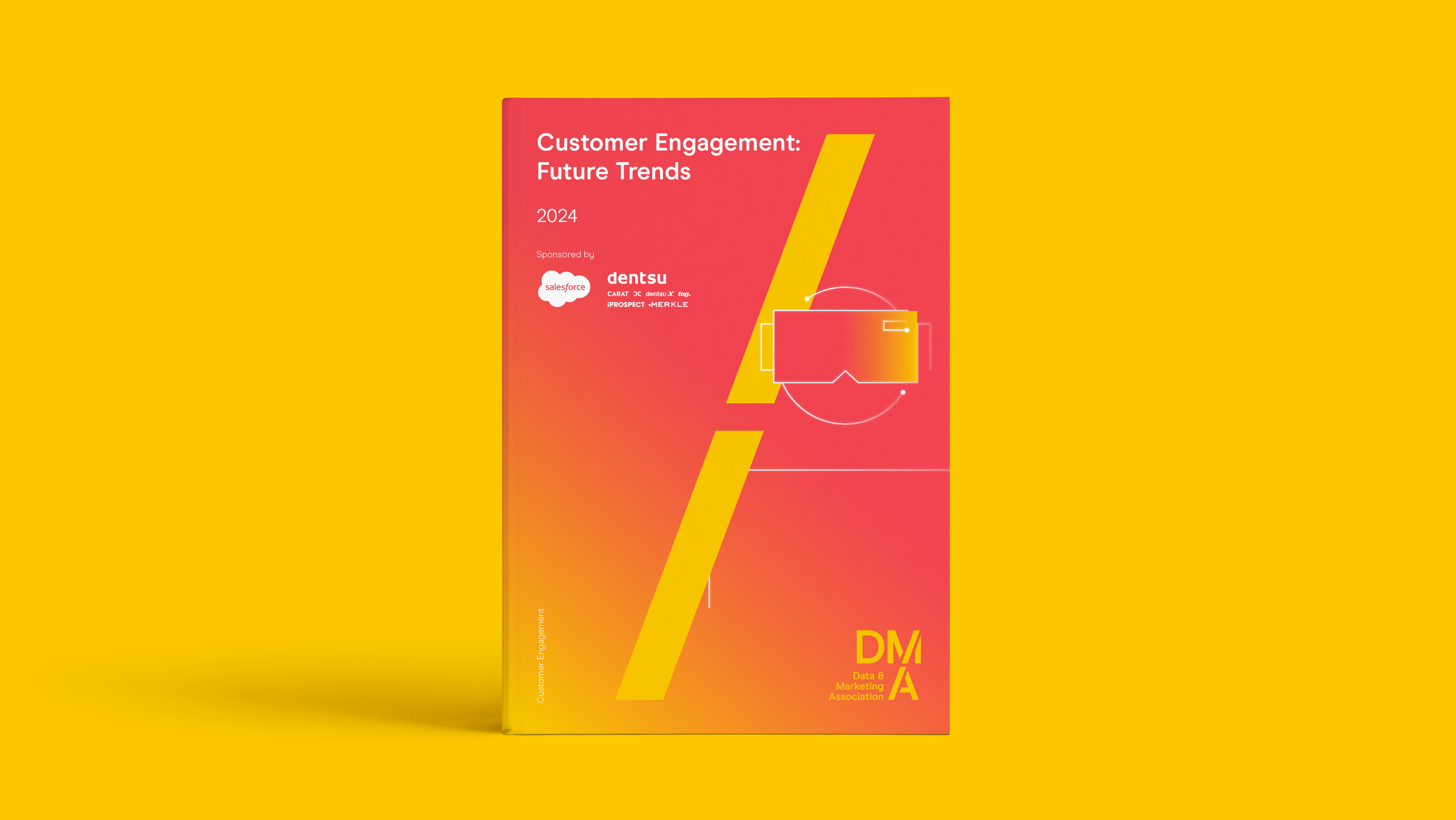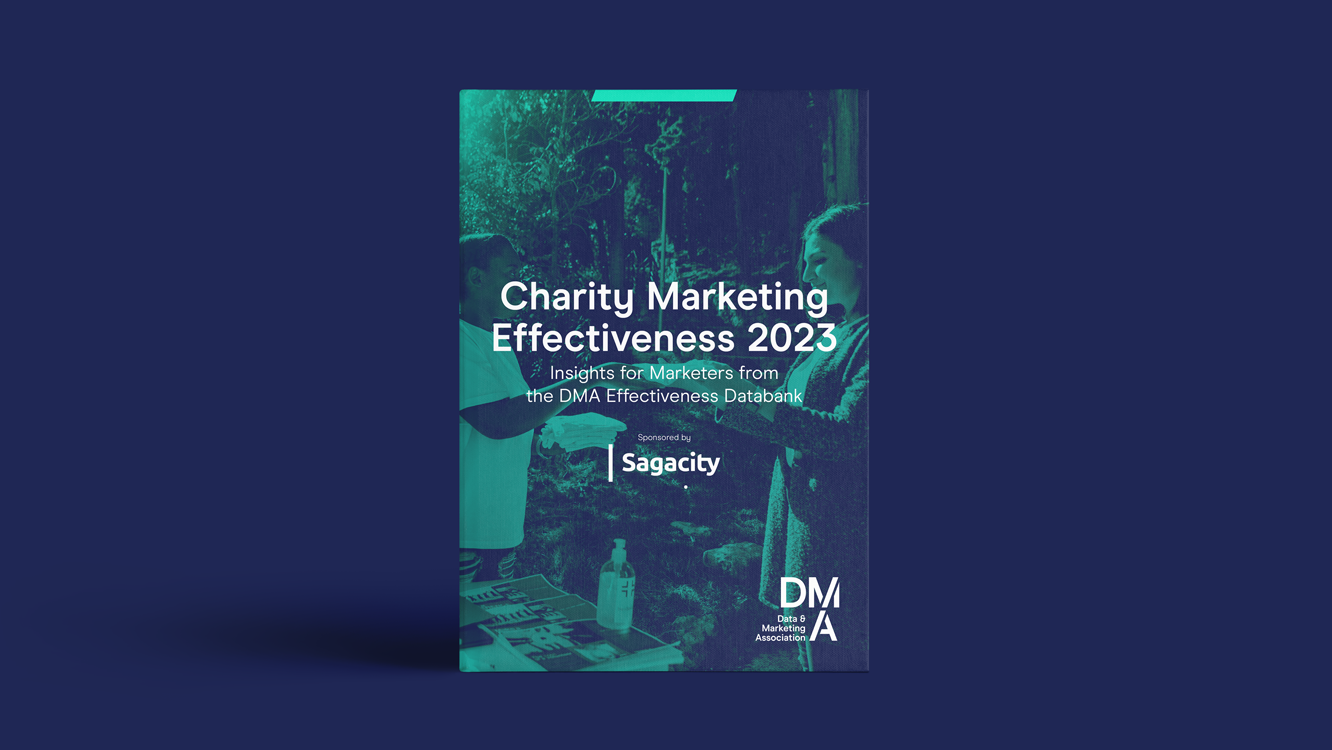DMA Insight: The Impact of Coronavirus on Marketers
17 Dec 2020

Over 200 senior data and marketing professionals came together to judge this year’s DMA Awards. Working with insight partner Feefo, they were asked to review the most creative, strategic and successful work the industry had to offer. The survey revealed that the pandemic has altered our day-today lives, but what does the future hold, and does this change from business to business?
Overall, half of those surveyed (51%) reported negative impacts due to the coronavirus, with a further 13% saying it has been extremely negative. These figures also reflect what the DMA has in its ‘Coronavirus - The Impacts on Business’ series that has been running throughout the pandemic period.
Looking forward to the long-term impacts, views are slightly more encouraging – a third believes in a positive future (36%), up from the 23% who believe it’s currently positive. However, nearly half (46%) still believe the long-term impacts will be negative.

To better understand these perspectives, we mapped these across two axes, which reveals five distinct groups: Negative, Positive, Maintain, Optimist and Pessimist.
The ‘Negative’ group is the largest, at 43% and is composed of those industry professionals who believe the impact on their businesses have been and will continue to be negative. On the opposite pole, for the ‘Positive’ group, one in five (19%) have found success through the pandemic and believe this will continue.
One in five (21%) are in the ‘Maintain’ group and tend to believe in the steadiness of the data and marketing industry.
The ‘Optimist’ group, which is 13% of respondents, report that despite the negative impacts to this point, they believe things will get better in the long-term.
Lastly, just 4% of respondents found themselves in the Pessimist grouping – not too surprising given how few have had a positive experience to date, but this group believe this will grow increasingly worse in the long-term.
.png)
Using this segmentation, we can identify some of the key differences and features between the different groups.
Firstly, it is worth mentioning that there was no significant difference between the organisations across all the groups in this segmentation. In other words, the organisations’ size, type (B2B or B2C), sector, or definition (agency, brand, or service/technology provider) made no discernible difference to their outlook – to date or looking forward.
So, what does define these groups and their organisations?

Negative (43%):
This group is much more likely to point to recovering from the coronavirus pandemic (76%) and dealing with Brexit (51%) as the biggest upcoming challenges the data and marketing industry will have to face.
They are more likely to report 'Understanding effectiveness beyond ROI/sales’ (61%) as a benefit of a more compassionate or thoughtful marketing approach.
They are also slightly more likely to mention a wide variety of challenges to improving their customer engagement strategies in the future, including: 'Limited budget’ (61%), 'Limited internal resource’ (44%), 'Lack of technical skills’ (28%), 'Lack of senior support’ (25%), and 'Lack of content’ (22%).
Positive (19%):
Senior marketers in this group are more likely to believe their organisation (or clients) have been ‘Much more’ compassionate or thoughtful during the coronavirus period (21%). They are less likely to cite a lack of strategy (19%) as a significant challenge to improving customer engagement and marketing campaigns.
Also, respondents were slightly more likely to cite 'Measuring ROI’ (50%) as one of the biggest upcoming challenges facing the data and marketing industry, but slightly less likely to see bringing new technologies into existing processes (14%) as such.
Maintain (21%):
This group is less likely to cite 'Recovering from Coronavirus’ (40%) as one of the biggest upcoming challenges for the industry. Also, they are slightly less likely to mention 'Lack of technical skills' (11%) as a significant challenge to improving customer engagement and marketing campaigns.
Optimist (13%):
These optimistic respondents are more likely to believe their organisation (or clients) have been more compassionate or thoughtful amid the pandemic (69%).
Also, they are more likely to report 'Attracting talent’ (62%) as one of the biggest challenges facing the industry. This group is more likely to point to 'Lack of Strategy’ (52%) as a significant challenge to improving customer engagement and marketing campaigns in the future.
Pessimist (4%):
The pessimistic group are more likely to believe their organisation (or clients) have been 'More’ (80%) or ‘Much more’ (20%) compassionate in their marketing approach during the pandemic.
In addition, this group is less likely to cite 'Limited budget’ (20%) and more likely to say 'None of the above’ (20%) when questioned about the most significant challenges to improving their customer engagement strategies.
The DMA continues to provide a host of advice and support for the industry through this challenging time. The latest guidance, insights and news are available on the DMA website. You can also discover real-life examples of what a more compassionate and thoughtful marketing approach looks like by looking through the latest DMA Awards winners' case studies.
To find out more about the DMA’s latest insights and research, visit the research page.
Methodology
This research was undertaken by the DMA and was conducted in October 2020 via an online survey of 229 respondents that work in data and marketing in the UK – and had been invited to judge the DMA Awards 2020.
The data was collected, collated, and analysed by the DMA Insight department. The survey consisted of a maximum of 25 questions. Unless referenced, all data included in this report is taken from this survey.
If you have any questions about the methodology used in the report, you can contact the DMA’s research team via email: research@dma.org.uk.
1.png)



Please login to comment.
Comments